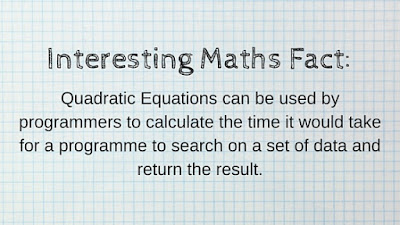1. Market & Data Analysis - It's Not Just for Business!
We all know that businesses must either drive demand or respond to it in order to be successful. They cannot take their eye off the market. That's why big data is big business. Businesses must know their market and continually strive to remain relevant otherwise they will lose their market share. That's obvious, right?
It's logical then that the workforce must also respond to commercial realities. In the same way that businesses must respond to changing business environments in order to be successful, the workforce must also develop and change in order to remain relevant. And yes, that means you!
2. Local Conditions Matter!
Schools are very good at preparing us for the obvious. They teach us traditional things that are useful for the obvious and traditional professions. That may be changing in some countries, and even in the UK now children are taught programming at school, which is brilliant! Nevertheless, schools will probably always struggle to keep up with industry because they are not driven by industry.
Schools are not driven by commercial demands or targets. They don't have to analyse the market to make informed choices about which skills are most in demand, or which ones are likely to be. They get their funding from the state or from school fees. The success of a school is measured by the grades achieved by the students, but not by how useful those qualifications are.
What Does That Mean for Your Career?
Formal education is only a very small part of what makes you useful or employable. Don't rely on schools to drive your learning. You must do your own research so you can make informed decisions.
There is nothing wrong with traditional careers, but the fact that they are so popular means that competition is fierce! This is why you must look at the bigger picture make smart choices.
3. Analyse Your Choices - Adrenaline, Dreams and Emotions Will Only Take You So Far!
We all come from different backgrounds with different resources and different realities. What may be a viable career choice or route to that career for one person, may not be at all possible for another. That's why it is so important to drill down into the details when making any life-altering decisions.
When choosing a career or making a career change, it's really important to be in full possession of the facts. Adrenaline, dreams and emotions will only sustain you for so long before reality hits! So that's where having solid plans and goals, based on reliable and actionable information, will really come into their own.
4. Demand - The Most Important Consideration!
Is there are real demand for this skill or profession now, and if not yet, is there likely to be a demand in the future?
Low Barriers to Entry & High Demand
High Barriers to Entry & Low Demand
Other careers have high barriers to entry and relatively low demand, but they have large pools of skilled workers to choose from that are also easily replaced. For example, lawyers, bankers, marketing executives. These so-called prestige careers attract lots of applicants, universities are churning them out, and companies can take their pick.
If you are planning on entering a saturated market place, you must be exceptional or you will get drowned out in the din! If you have unlimited resources or resourcefulness, incredible skill, contacts, energy, and you are 100% sure that you can make it in a crowded market place, then by all means, go for it! You have nothing to lose. You will be the last man standing.
If, however, there's a lot more riding on it, and you have a great deal to lose if things go wrong, then don't set yourself up for failure.
There is another way...
5. Take Back Control! Get a Skill that is Rare AND in High Demand!
Not sure where to start?
You don't have to look further than the news to discover where the skills shortages are in your area or your country. What is your government doing to encourage people to get into certain professions? Which skills are they actively recruiting for abroad because they cannot find the local talent?
Talk to people you know. Which professions or skills do they or their employers struggle to find? Why is that?
Once in a while we'll come across someone who does something that we've never heard of. These are golden opportunities! Ask them as many questions as possible!
Tech Careers. Not Just For techies!
In the UK there is a massive shortage of programmers right now. The barriers to entry-level positions are relatively low, the pay is great, the career development opportunities are unparalleled, and you will always be relevant! The tech industry is crying out for programmers! This is clear from the sheer number of free learning resources - of exceptional quality - provided by the industry. They need you!
6. Whatever Your Chosen Career Path, Make Informed Choices!
This step requires asking yourself some serious and searching questions. Don't just passively go through this exercise. Write down your answers! Analyse them, and think of some other questions you could ask yourself, and write those down!
Some really good questions to ask would be:
Is it the prestige that attracts you?
Is it the type of work you think you'd enjoy (job satisfaction)?
What are the skills required for that profession?
What are the required qualifications?
How much would it cost to gain those qualifications?
How long would it take you to gain those qualifications?
How would that fit with your existing commitments?
Can you afford to pay for the course(s) or would you have to work in order to support your studies?
Could having to work have a negative impact on your studies?
Could you borrow the money needed to pay for the course?
How long would it be before you secure your first position in that field?
What is the entry-level pay?
Could you survive on that pay?
Would you be able to pay back any debts incurred from your studies?
How long would it take you?
Who are the successful professionals in that field, what is their background and how did they get there?
Do you know anyone who works in that field?
Could you do some work experience to get a feel for it?
What are the working hours like?
Where are the jobs located geographically?
Would you be willing to relocate to another town, city, region or even another country?
7. Do It Now!
When you have formed a clear picture of your options, make sure you do something about it!
Your future awaits! :)
7 Steps to #Career #Success. Adrenaline, #Dreams & #Emotions will only get you so far! https://t.co/igc1aHMVB2 pic.twitter.com/SJr1DCrmYt
— Danielle Curio (@DanielleCurio) December 31, 2015

























